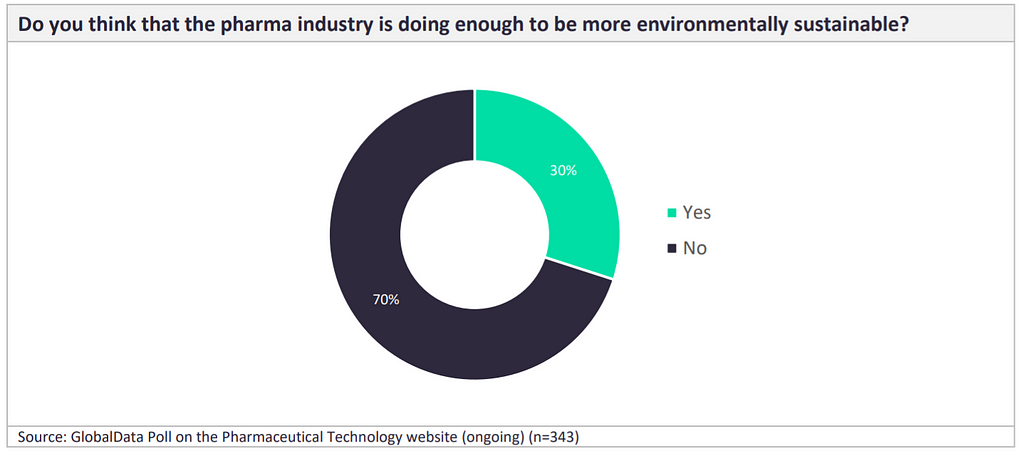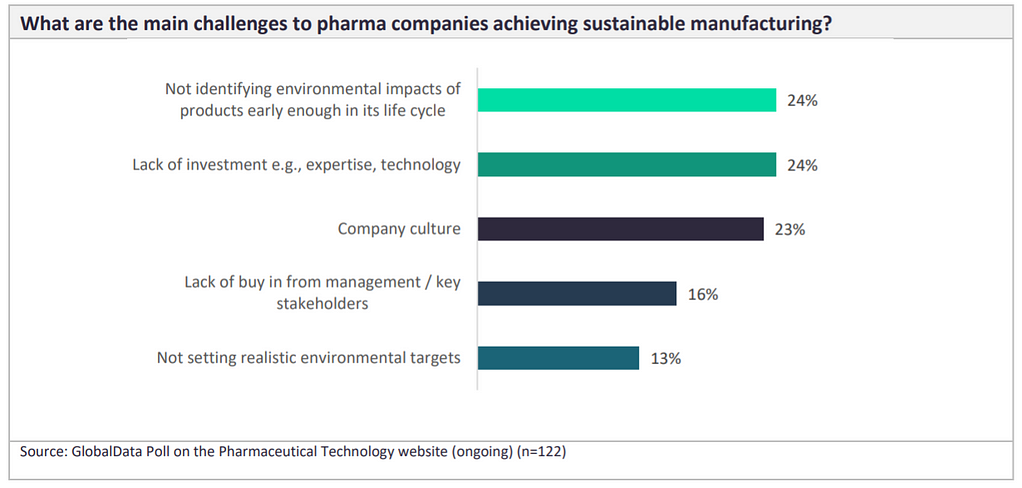
When it comes to sustainability in healthcare, one may literally find the roots of hope in Wales’ scenic Usk Valley.
Soon to open to the public is Gwreiddiau Gobaith, Welsh for “roots of hope.” Found in the valley on a hillside outside the town of Crickhowell, the spot is a woodland planted by critical care staff of University Hospital of Wales in Cardiff. Consisting of a thousand trees, Gwreiddiau Gobaith commemorates the staff’s patients and patients’ families during the maelstrom of 2020, whilst also offsetting the carbon emissions and waste that came from the machines needed to treat the hospital’s Covid-19 patients.

Discover B2B Marketing That Performs
Combine business intelligence and editorial excellence to reach engaged professionals across 36 leading media platforms.
The fundraising page for the project mentions the “huge quantities” of energy caring for patients with Covid-19, along with the single-use plastic in PPE, aprons, gloves, visors and masks. As GlobalData research on sustainability and ESG in healthcare reports, one of the main challenges in fighting pollution is eliminating single-use plastics widely used in hospitals and other healthcare facilities.
A study from February this year estimates the amount of plastic wastes generated worldwide since the outbreak at 1.6 million tonnes per day. Approximately 3.4 billion single-use face masks and face shields are estimated to be discarded as a result of Covid worldwide on a daily basis. That’s a lot of plastic that will take a lot of time to degrade: up to half a millennia, to be exact.
As such, the tree planting project by University Hospital of Wales staff is one which the Centre for Sustainable Healthcare (CSH) approves of. Based in Oxford, the CSH is behind the NHS Forest, a project which works with healthcare professionals and organisations to make green spaces around the UK available for health purposes. While Gwreiddiau Gobaith wasn’t an NHS Forest project, the CSH says the newly-planted woodland is one that is “very much welcome.”
“The health and care system in England is responsible for around 4–5% of the country’s carbon footprint and the NHS has pledged to reach net zero for its own carbon emissions by 2040,” a CSH spokesperson tells Verdict. “While these targets are likely to be met through a whole range of changes in practice, natural solutions like tree planting and meadow creation can contribute.

US Tariffs are shifting - will you react or anticipate?
Don’t let policy changes catch you off guard. Stay proactive with real-time data and expert analysis.
By GlobalData“The Committee on Climate Change has recommended that we should be aiming to plant around 30,000 hectares of new woodland in the UK every year and NHS sites can certainly help to meet this target.”
“Between them, our NHS Forest sites have planted more than 77,000 trees on or near NHS land and many have plans for more in the coming tree planting season,” the CSH notes.
Healthcare’s ESG trend
The planting of Gwreiddiau Gobaith is in-keeping with the current theme of sustainability in healthcare. A GlobalData poll of pharma industry professionals found that over 40% of respondents believed that environmental issues need to be addressed the most, followed by approximately 30% for social and 25% for governance issues.
“Many players across the healthcare industry, including pharma, medical devices, and healthcare providers, are announcing new ESG goals and issuing pledges to ensure more sustainable practices are implemented and upheld,” writes GlobalData.
“Covid-19 has led to a greater focus on ESG across healthcare. As the world endures the ongoing effects of Covid-19, ESG needs to be at the core of any company or institution that wants to continue to provide quality care and services with ever increasing healthcare costs and economic uncertainty.”
As shown below, an ongoing GlobalData poll of pharmaceutical industry professionals shows that 70% of 343 respondents believe that the pharma industry is not doing enough to be more environmentally sustainable.

A second GlobalData survey found that not identifying the environmental impacts of products early enough in their lifecycle, along with lack of investment, were the largest barriers to pharma companies achieving sustainable manufacturing. Company culture was also identified as a significant barrier by respondents.

“Environmental sustainability in the pharmaceutical industry is inherently challenging and has historically been met with resistance,” reports GlobalData. “This is partially due to the complex nature of pharmaceutical research, design, and drug production processes, from strict laboratory procedures to specific production and manufacturing protocols.
“Recent trends in the pharmaceutical industry will have a negative knock-on environmental impact, such as the shift from therapeutic proteins to more complex biologics such as cell and gene therapies. This will lead to a change in manufacturing from reusable stainless-steel fermenters and bioreactors to single-use plastic bioreactors.
“In addition, the offshoring of an ever increasing percentage of small molecule (fine chemical) manufacturing to emerging markets such as India and China, where environmental regulations are less strict, will raise the likelihood of further environmental damage.”
Pharma leaders in healthcare sustainability
With the ageing global population and the rising prevalence of chronic diseases, the demand for pharma products will continue to increase, and the resulting rise in manufacturing will continue to clash with environmental sustainability objectives.
However, there is hope as pharma companies are developing strategies to reduce, minimise and eliminate waste in the industry. In its report on sustainability in healthcare, GlobalData identifies leaders in the theme and for pharma, the environmental exemplar is British multinational GSK.
As part of GSK’s environmental strategy, the company set several targets for 2020, including reductions in its water impact by 20% and operational waste by 50%.
GSK also aims to build sustainable supply chains for its Nutrition portfolio, specifically by ensuring sustainable farming practices are implemented and upheld with local farmers. This in turn aims to improve agricultural practices, yields, competitiveness and livelihoods, meeting the social element needed for effective ESG practices.
In November 2020, GSK followed up on its environmental pledges with ambitions to achieve carbon neutrality across its value chains by 2050, and ensure net neutrality on nature by 2030.
The brand is confident it can reach its target to ensure a net-zero impact on climate change and net positive impact on the environment within 10 years. This bullishness is due to it having implemented a restoration programme in areas where it cannot ensure carbon neutrality. Specific targets include renewable electricity at all GSK sites, the use of electric vehicles for its pharmaceutical representatives and ensuring its materials are sustainably sourced and deforestation-free.
Additionally, GSK states that since its pledge in 2010, it has reduced carbon emissions by 34%, surpassed its water impact target by cutting its total water use by 31% and reduced the waste it sends to landfills by 78%. It plans to further reduce water usage by 30% at high-risk sites by 2030, although its high-risk sites are still in the planning phase.
Following GSK’s lead is AstraZeneca, which has committed to zero carbon emissions by 2025 and plans to make its entire value chain carbon negative by 2030. Corporations such as Takeda have also received praise and awards for their efforts in green chemistry.
Healthcare’s ESG heroes
In healthcare, GlobalData pegs UnitedHealth Group as a leader in environmental sustainability. This is because the company focuses on reducing waste and increasing the amount of paper to recycle by offering customers and clients paperless options through digital forms. It has also been included in the Dow Jones Sustainability North American and World Indices for 21 consecutive years.
Finally, in the medical devices field, it is Phillips which leads. As GlobalData reports, “the health technology company and medical device manufacturer Philips has embedded sustainability in its innovation processes and business models.”
The MammoDiagnost DR digital radiography system developed by Philips, for example, is designed to result in less energy consumption for the customer, no silver pollution of wastewater and no consumption of harmful chemicals for film processing.
According to Philips, the environmental benefits of this product include a 45% reduction in energy use, a 13% reduction in product weight, 11% less packaging, a 20% radiation dose reduction and a 24% improvement in the product’s total environmental impact.
In addition, the company reported that it successfully met various of its ESG targets, including carbon neutrality in its operations, 100% electricity from renewable sources, over 70% of sales from green products and services, 15% of sales coming from circular revenues, recycling 90% of its operational waste, and sending zero waste to landfill.
Summing up sustainability in healthcare
While this is all provides hope for Mother Nature, healthcare brands are incentivised to keep their noses green in other ways. In short: it makes business sense.
The reluctance of some CEOs to embrace sustainability principles because of the age-old view that it will hurt profits is now out of date, as GlobalData reports.
“The evidence suggests that those companies that are too slow to improve their approach to ESG will see an exodus of customers and a drop in profits. Stakeholders are also becoming more conscious of ESG, and companies taking significant action now will be rewarded in the long term.”
There is also money to be saved from going green. Nurses at London’s Great Ormond Street hospital for example realised that doctors and healthcare professionals had been using non-surgical gloves to perform tasks which didn’t need them. When nurses reminded staff that gloves weren’t essential for these purposes, the hospital was able to cut costs by $90,000.
Going back to Gwreiddiau Gobaith, one can also find a boon when it comes to health itself. Where stakeholder profits can stay financially healthy, healthcare’s consumers find themselves physically healthier in a greener, more sustainable world.
“Trees have multiple benefits, improving biodiversity, shade and air quality,” as the Centre for Sustainable Healthcare explains. “Access to green space has been linked with improvements in mental health and reductions major health problems, such as heart disease and diabetes, so supporting better access for all has the potential to reduce the emissions associated with long term care and treatment.”
The roots of hope may hold then, supporting true sustainability in healthcare not just in Wales but worldwide.




